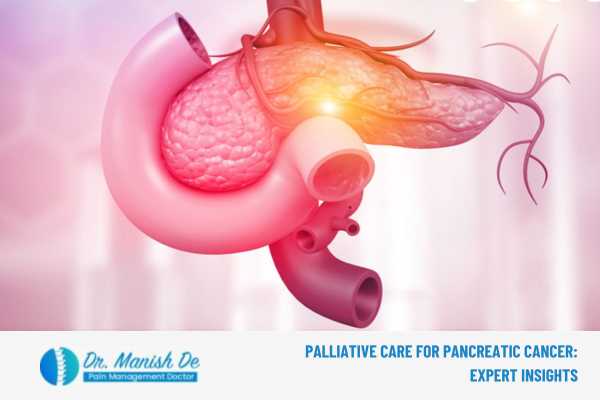Pancreatic cancer is one of the most challenging diagnoses a patient can face. Known for its aggressive nature and often late detection, it presents significant hurdles in treatment and management. However, amidst the difficulties, there is hope and comfort in palliative care. Dr. Manish De, a distinguished Pain Management Specialist in Kolkata, offers invaluable insights into the palliative care approaches for pancreatic cancer patients.
Palliative care for pancreatic cancer focuses on improving the patient’s quality of life by managing symptoms, relieving pain, and providing emotional support. Dr. Manish De emphasizes a multidisciplinary approach, collaborating closely with oncologists, surgeons, psychologists, and other healthcare professionals to address the diverse needs of patients.
Pain management stands at the forefront of palliative care for pancreatic cancer. Dr. Manish De employs a combination of pharmacological interventions, such as opioid analgesics and nerve blocks, along with non-pharmacological techniques like acupuncture and physical therapy. This comprehensive approach ensures effective pain relief while minimizing side effects and improving overall well-being.
Beyond pain management, palliative care encompasses various aspects of symptom control, including nausea, vomiting, fatigue, and loss of appetite. Dr. Manish De adopts personalized strategies tailored to each patient’s unique symptoms and preferences, empowering them to live as comfortably as possible.
Emotional and psychological support is equally vital in palliative care. Dr. Manish De provides compassionate counseling and guidance to patients and their families, helping them navigate the emotional challenges associated with pancreatic cancer and fostering a supportive environment. In conclusion, palliative care plays a crucial role in enhancing the quality of life for pancreatic cancer patients. Dr. Manish De’s expertise and compassionate approach ensure that patients receive comprehensive care that addresses their physical, emotional, and psychological needs, offering comfort and dignity throughout their journey.


